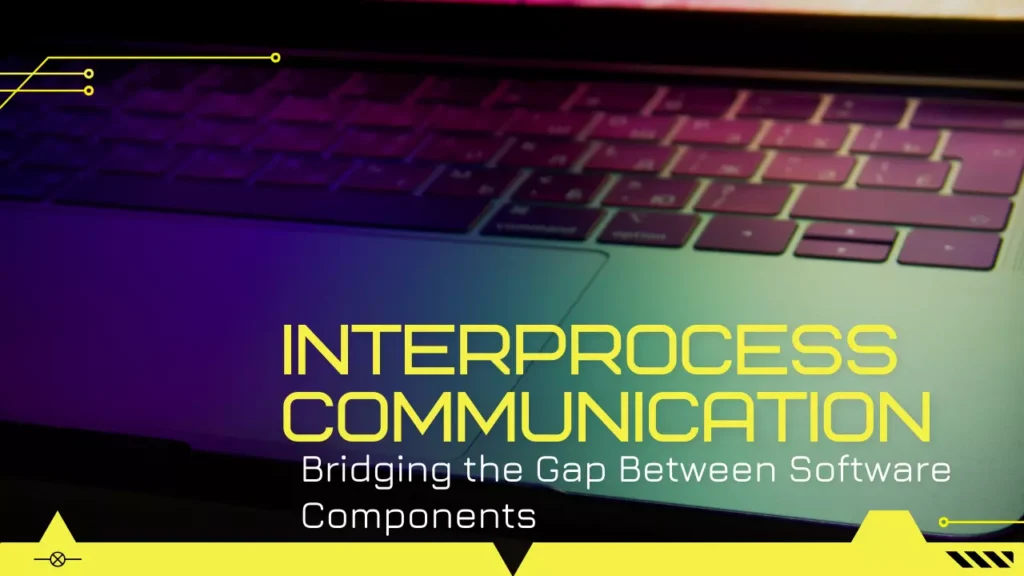Interprocess communication
Interprocess communication (IPC) refers to the mechanism by which different processes in a computer system can communicate and exchange data with each other. In today’s interconnected world, where numerous applications and services run simultaneously on a computer, IPC plays a crucial role in enabling efficient and seamless communication between these processes.
One of the most common methods of IPC is through the use of inter-process communication protocols or APIs. These protocols provide a set of rules and guidelines that govern how processes can communicate with each other. Examples of such protocols include sockets, pipes, message queues, shared memory, and remote procedure calls (RPCs).
Benefits
IPC allows processes to share information, coordinate tasks, and synchronize their activities. Let’s explore some of the key benefits and use cases of IPC:
1. Resource Sharing:
IPC enables processes to share resources such as memory, files, and devices. For example, multiple processes can read and write to a shared file or access a shared printer simultaneously, enhancing efficiency and reducing resource duplication.
2. Collaboration:
In a distributed system where different processes run on different machines or servers, IPC facilitates collaboration and coordination between these processes. They can exchange data, request services, and work together to achieve common goals.
3. Process Isolation:
IPC helps in maintaining strict process isolation, ensuring that processes do not interfere with one another, leading to system stability and security. By enforcing communication through well-defined interfaces and protocols, IPC prevents processes from accessing unauthorized data or modifying each other’s memory.
4. Parallel Processing:
IPC enables parallel processing, allowing multiple processes to work together on the same task or problem simultaneously. This can significantly speed up computations and improve overall system performance.
5. Message Passing:
IPC facilitates the exchange of messages between processes, making it easier for them to communicate and share data. Messages can be sent asynchronously or synchronously, depending on the requirements of the application.
Real-World Applications
1. Web Browsers
Web browsers use IPC to manage multiple tabs or windows. Each tab or window runs as a separate process, and IPC ensures they can share data while remaining isolated.
2. Operating Systems
Operating systems rely heavily on IPC for various tasks, such as process management, file handling, and memory management. IPC ensures that different components of the operating system can work together seamlessly.
3. Database Management Systems
In database systems, IPC is crucial for managing concurrent access to data. It ensures that multiple users or applications can interact with a database without conflicts.
Challenges in IPC
While IPC offers numerous benefits, it also presents challenges:
1. Security
IPC mechanisms must be secure to prevent unauthorized access and data breaches.
2. Performance
Efficient IPC is essential for maintaining system performance, especially in high-throughput applications.
3. Portability
IPC mechanisms may not be portable across different platforms or operating systems, which can complicate software development.
Conclusion
In conclusion, interprocess communication is a fundamental aspect of modern computing systems. Through various communication protocols and APIs, IPC enables processes to interact, share resources, and collaborate efficiently. By leveraging IPC, developers can create robust and scalable systems that can seamlessly communicate and exchange data, enhancing the overall performance and functionality of their applications.
FAQs
1. What is the primary purpose of Inter Process Communication?
A. IPC enables processes to communicate and share data, facilitating multitasking, resource sharing, and coordination.
2. Which IPC mechanism is suitable for high-performance data exchange?
A. Shared memory is ideal for high-performance data exchange between processes.
3. How do web browsers use IPC?
A. Web browsers use IPC to manage multiple tabs or windows, allowing them to share data while remaining isolated.
4. What challenges does IPC pose to software development?
A. IPC can present challenges in terms of security, performance, and portability across different platforms.



